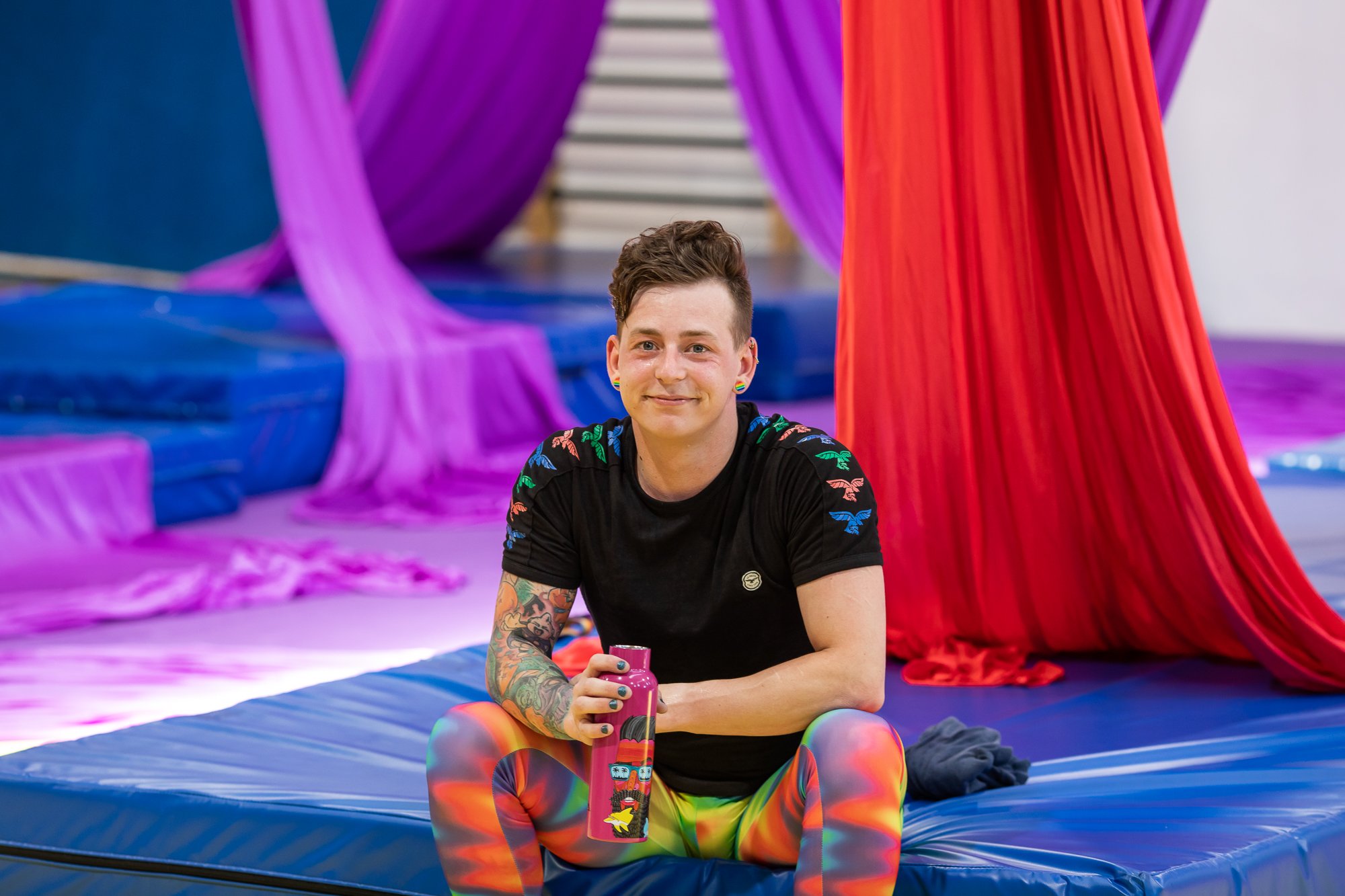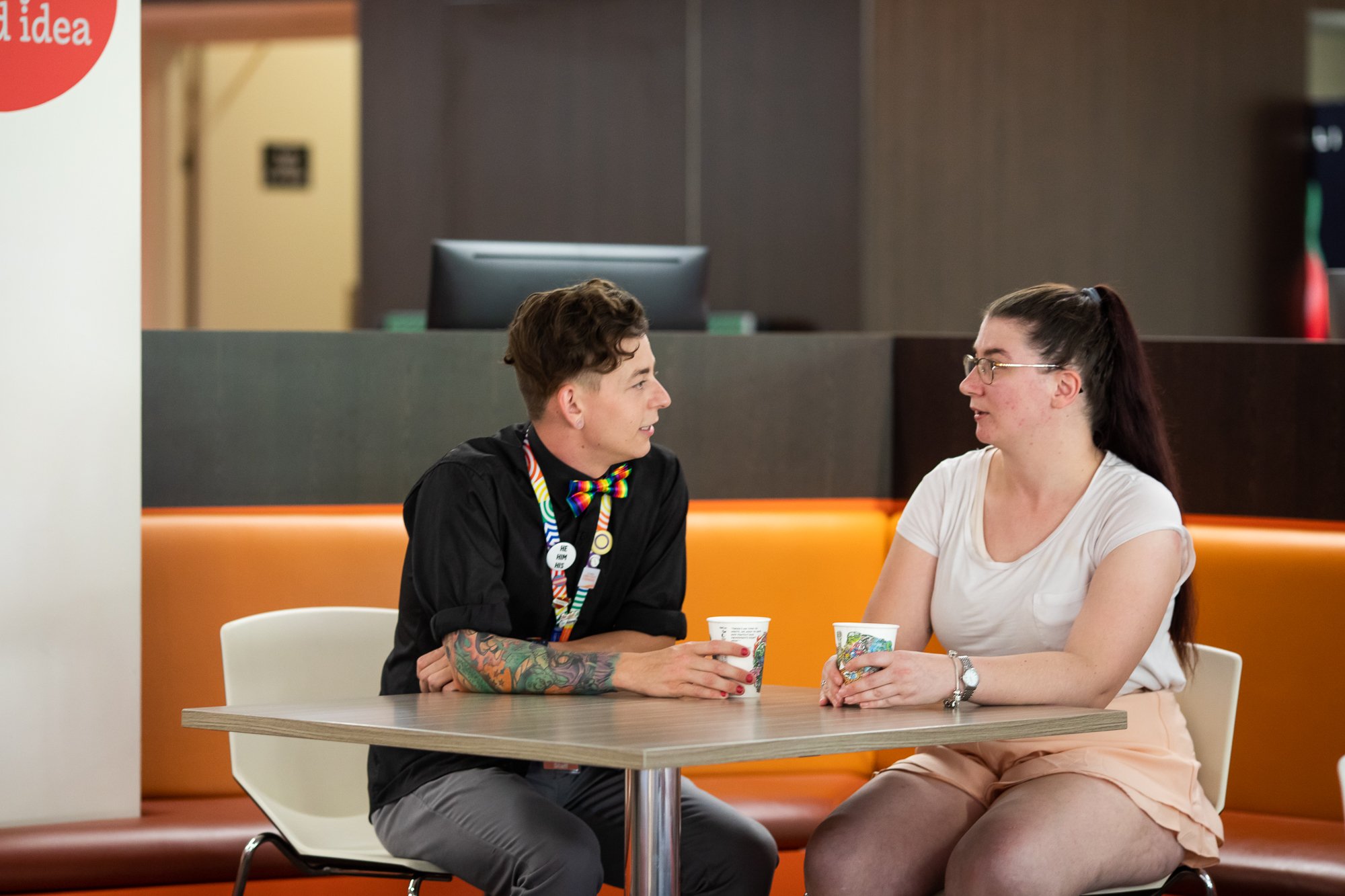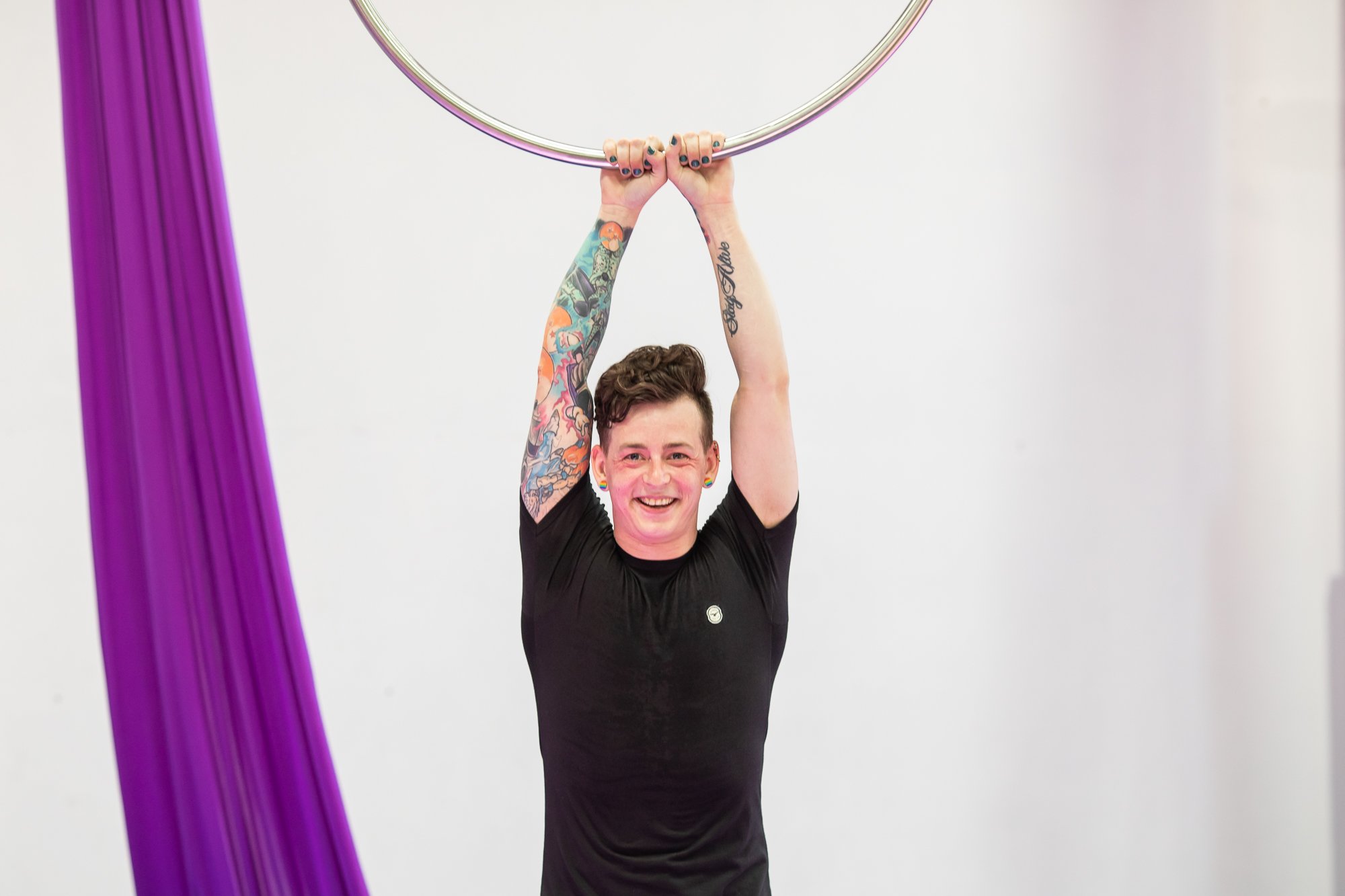Lived experience drives regional diversity advocate
Nicholas Steepe was 15 when his big brother came at him with a question he wasn’t yet ready to answer. “Are you gay or what?”
“He was standing over me and, at that time, it felt like the safest option was to come out as bisexual. He said, ‘Well, if you turn full gay, I'll put you in hospital’."
This seemed to be typical in his hometown, and this attitude drove Nic further back into the closet.
Growing up in Dubbo, Nic said there weren’t many role models he could relate to in regional NSW. But fast-forward several years and Nic has turned that experience into fuel for his advocacy fire.
Today, Nic lives in Junee with his partner Jonathon and works for Charles Sturt University as an Equity, Diversity and Inclusion Advisor. It’s a role with great meaning for him.
“I'm heavily involved in initiatives to promote inclusion for everyone at the university. It is really important to me because I understand what it's like to not feel included, at a university, or in society in general. And based on my lived experience, I feel I’m able to contribute to making sure everyone is included.”
Working at Charles Sturt is just the tip of the iceberg for Nic’s efforts in promoting equity, diversity and inclusion. At 27, he also throws himself into many other advocacy roles and volunteer roles within the LGBTIQA+ community and has quite a long history with that type of work, dating back to his days studying for his social work degree.
For Nic, helping others is a way to give back and to recover from past experiences.
“It all stems from my lived experience and issues that are really important to me. Whether it be sexual health, mental health or being out as LGBTIQA+ and living in a regional area, these are issues we should have more conversations about.
“I really want to use my platform and the opportunities I've had to raise the profile of these issues, which comes from wanting to help others and giving back.”
Support is key
Nic describes a long history of battling depression and anxiety, particularly during his teenage years when he faced family and peer rejection.
“I didn't really have the skills or the tools to overcome what I was experiencing at the time and there wasn’t a great deal of support available, but it was through the help of one particular teacher that saw me (shout out to Hudson!) and my school counsellor that I was able to work through a lot of the feelings that I was experiencing.”
Years later, when Nic got the job at headspace Dubbo, he welcomed the opportunity to go into schools and build mental health literacy.
“I think there is less opportunity to get that mentorship and community support in regional areas, so to have conversations around mental health with these students and give them tools and skills they could apply in their own lives was a really beautiful shift for me. I liked being able to help create more positive mental health conversations compared to what I had when I was struggling with my own mental health.”
Nic’s own path to self-acceptance and mental wellbeing is an ongoing journey but he says finding the right support is key.
“It was really when I began to accept myself fully and start to be proud of who I was that my mental health began to improve. It has been a journey to find out what works for me, what is self-care and what improves my mental health.
“It’s also been really important to reach out to support services. I tell people all the time that it really does get better but the reason it gets better is because you reach out for support. You reach out to organisations like headspace, your school counsellor, your family, your friends, the people that want to be there to support you. You put in the work to seek out those supports and work on improving the way that you're thinking, and how you’re feeling.
“I have been the happiest over the last couple of years than I have been in my life, and I think that that is because of a lot of internal work that I've put into improving my mental health, and the social support I have from my friends and chosen family.”
People can change
When it comes to helping others to see things differently in terms of acceptance and inclusion, Nic believes change is possible and points to his brother as an example
“I absolutely believe people can change their attitude and behaviours. I have seen the change that can be created by having conversations and by exposing people to things they aren't unaware of or might not be educated about.
“About two or three years after my brother stood over me threatening to hurt me for being gay, I introduced him to my first boyfriend.
“He just shrugged his shoulders and said, ’About time you found someone.’ He had gone on a journey to learn more about the LGBTIQA+ community, learn more about what it means to be gay, and he had shifted his perception and his attitude.
“One of the most beautiful things for me today is that my niece and nephew, my brother’s children, know me and my partner as Uncle Nic and Uncle John. Ten years ago, I never, ever would've imagined that that would be possible. My brother is one of my biggest supporters now in everything I do. And just through those conversations, through that exposure to me as a human being, and him going on that journey to educate himself and understand, he made such a massive shift.
“That's why I do what I do – that's what drives me. People can change. People need to learn and be educated, but also to be given the opportunity to have respectful conversations. That's what I hope to do by sharing my story.”
The Australian Government resource Head to Health has digital mental health and wellbeing resources, for yourself or for someone you care about – visit headtohealth.gov.au.
Anyone who is experiencing a mental health emergency (themselves or others) should call Mental Health Line 1800 011 511, Lifeline 13 11 14 or call 000.





